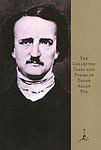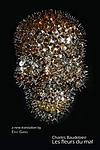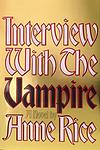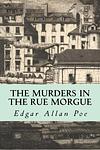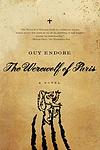The Greatest "Paris, Gothic" Books of All Time
Click to learn how this list is calculated.
This list represents a comprehensive and trusted collection of the greatest books. Developed through a specialized algorithm, it brings together 300 'best of' book lists to form a definitive guide to the world's most acclaimed books. For those interested in how these books are chosen, additional details can be found on the rankings page.
Genres
The "Paris" category of books typically refers to literature that is set in or inspired by the city of Paris, France. These books often explore the city's rich history, culture, and landmarks, as well as the experiences of its inhabitants. The genre may include fiction, non-fiction, memoirs, and travelogues, and may cover a range of topics such as art, food, fashion, and romance. Overall, the "Paris" category offers readers a glimpse into the enchanting and iconic city that has captivated generations of writers and artists.
Gothic literature is a genre that combines elements of horror, death, and romance, often set against dark, brooding landscapes and decaying architecture, such as haunted castles or monasteries. Originating in the late 18th century, it delves into the human psyche, exploring themes of madness, the supernatural, and the sublime. Classic Gothic novels often feature a sense of dread and the unknown, with characters confronting their deepest fears and societal taboos. The atmosphere is typically heavy with mystery and melancholy, and the narrative may include ghosts, monsters, or otherworldly beings. Gothic fiction seeks to evoke a visceral emotional response, such as fear or awe, and often contains a critical look at the time's social, cultural, and moral attitudes. Notable authors in this genre include Ann Radcliffe, Mary Shelley, Edgar Allan Poe, and Bram Stoker, whose works have left an indelible mark on literature and continue to influence modern horror and suspense.
Countries
Date Range
Reading Statistics
Click the button below to see how many of these books you've read!
Download
If you're interested in downloading this list as a CSV file for use in a spreadsheet application, you can easily do so by clicking the button below. Please note that to ensure a manageable file size and faster download, the CSV will include details for only the first 500 books.
Download-
1. The Complete Tales and Poems of Edgar Allan Poe by Edgar Allan Poe
This collection brings together all of the author's most famous works, including poems, short stories, and novellas. Known for his macabre and gothic storytelling, the author's works are filled with themes of death, love lost, and human frailty. Notable inclusions are the haunting poem "The Raven," the chilling stories "The Tell-Tale Heart" and "The Fall of the House of Usher," and his only complete novel, "The Narrative of Arthur Gordon Pym."
-
2. The Flowers of Evil by Charles Baudelaire
"The Flowers of Evil" is a collection of poems that explore themes of decadence and eroticism, and the changing nature of beauty in the rapidly industrializing Paris during the 19th century. The work is renowned for its exploration of the paradoxes of pleasure and pain, the exotic and the commonplace, and the boundaries of morality and aesthetics. The poems challenge traditional notions of good and evil, suggesting that beauty can be found in unexpected and even disturbing places.
-
3. Nightwood by Djuna Barnes
"Nightwood" is a modernist novel that explores the complex relationships and sexuality of a group of Americans and Europeans living in Paris in the 1920s. The story primarily revolves around the tumultuous love affair between two women, one of whom is a married aristocrat. The narrative, known for its poetic and dense language, delves deep into the characters' psyches, exploring themes of identity, gender, and desire. The novel is also notable for its frank and groundbreaking depiction of homosexuality and transgender issues.
-
4. The Hunchback of Notre-Dame by Victor Hugo
Set in 15th-century Paris, this novel follows the story of Quasimodo, a deformed and hunchbacked bell-ringer of Notre-Dame Cathedral, who is shunned due to his appearance. Despite his physical deformities, Quasimodo falls in love with the beautiful gypsy girl, Esmeralda. However, his love is unrequited as she is in love with a handsome soldier. The novel explores themes of love, rejection, and the human struggle against fate and societal norms.
-
5. Interview with the Vampire by Anne Rice
The novel is a dark and atmospheric tale of a centuries-old vampire, Louis, who shares his life story with a young reporter. He recounts his transformation into a vampire by the charismatic and ruthless Lestat, their complex relationship, and their encounters with other supernatural beings. The narrative explores themes of immortality, loss, identity, and the human desire for love and companionship. The book is known for its rich detail and its philosophical and historical depth.
-
6. Against Nature by J. K. Huysmans
The novel follows the life of an eccentric aristocrat who retreats from society to live in isolation, dedicating himself to the pursuit of excessive aestheticism. He surrounds himself with art, literature, and music, and indulges in sensual pleasures and extravagant interior decoration. The protagonist's obsession with artifice over nature and his quest for absolute individualism and self-gratification are explored, reflecting the decadent movement of the late 19th-century France.
-
7. The Murders in the Rue Morgue by Edgar Allan Poe
"The Murders in the Rue Morgue" is a mystery novel that follows an amateur detective who uses his extraordinary analytical skills to solve a series of brutal murders that have baffled the police. The victims, two women, were killed in their locked Paris apartment under mysterious circumstances. The detective, with his unique method of deductive reasoning, uncovers the shocking truth behind the murders, revealing an unexpected perpetrator.
-
8. The Phantom of the Opera by Gaston Leroux
The book tells the story of a beautiful soprano at the Paris Opera House named Christine Daaé who becomes the obsession of a mysterious, disfigured musical genius living in the subterranean labyrinth beneath the opera house. Known as the Phantom, he terrorizes the opera company to compel them to keep giving roles to Christine, whom he tutors in secret. The tale unfolds with love, jealousy, and violence, culminating in a dramatic conclusion.
-
9. Justine by Marquis de Sade
"Justine" is a provocative novel that explores the life of a virtuous young woman who consistently faces adversity and misfortune. Despite her unwavering commitment to virtue and morality, she falls prey to various men who exploit and abuse her, leading her through a series of unfortunate events. The novel is a philosophical exploration of virtue, vice, and the nature of humanity, often challenging conventional notions of morality and ethics.
-
10. The Werewolf Of Paris by Guy Endore
"The Werewolf of Paris" is a gripping and chilling tale set in 19th-century France, exploring the life of a tormented werewolf. The story follows the protagonist's journey as he navigates his dual nature, torn between his human desires and the uncontrollable beast within. Filled with suspense, horror, and a deep exploration of the human psyche, this haunting novel delves into themes of identity, morality, and the eternal struggle between good and evil.
-
11. Down There by J. K. Huysmans
"Down There" is a novel that follows the life of a Parisian novelist who is disillusioned with his mundane life and seeks solace in the occult. His journey leads him to a satanic priest who introduces him to the dark world of satanism. The protagonist becomes deeply involved in this world, experiencing hallucinations and disturbing visions. The book is a deeply psychological exploration of the human fascination with evil and the macabre, set against the backdrop of late 19th-century Parisian society.
-
12. Pure by Andrew Miller
Set in pre-revolutionary France, the novel follows a young engineer who is tasked with demolishing an overflowing cemetery in Paris. As he undertakes this macabre task, he encounters a variety of characters, including a rebellious nun, a gravedigger, and a family living on the cemetery grounds. The book explores themes of mortality, the inevitability of progress, and the fragility of existence, all set against the backdrop of a society on the brink of dramatic change.
Reading Statistics
Click the button below to see how many of these books you've read!
Download
If you're interested in downloading this list as a CSV file for use in a spreadsheet application, you can easily do so by clicking the button below. Please note that to ensure a manageable file size and faster download, the CSV will include details for only the first 500 books.
Download